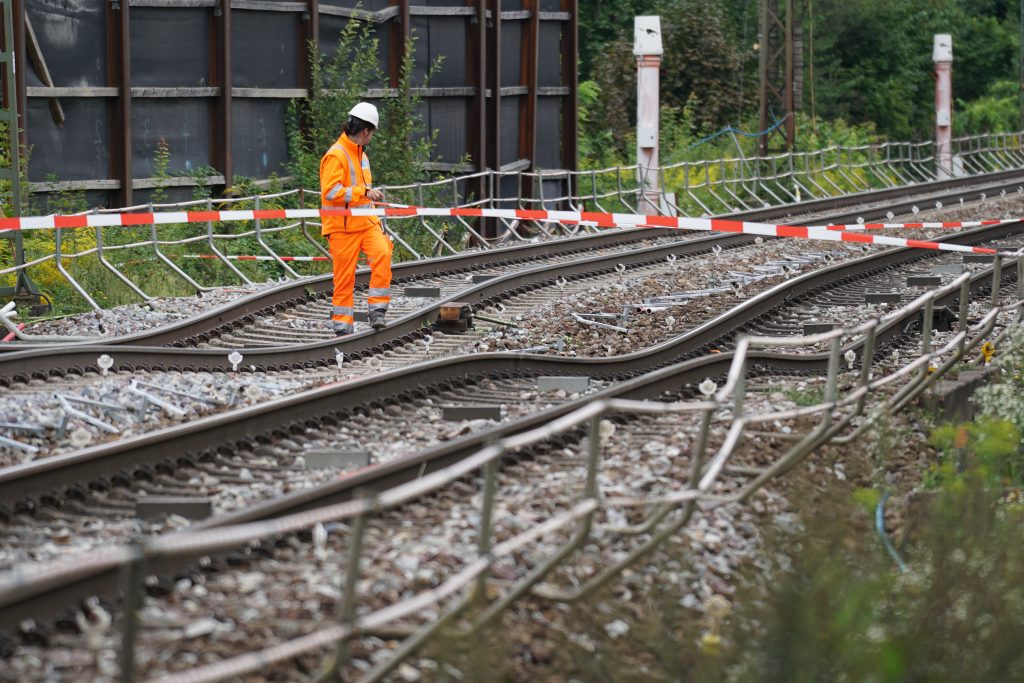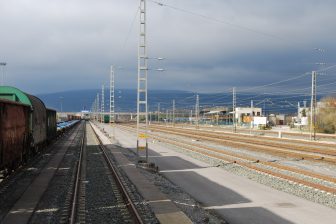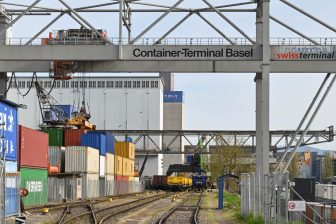DB: railway Karlsruhe-Basel remains closed till 7th of October
Deutsche Bahn and the Rastatt tunnel consortium announced that they will need until the 7th of October to repair the damaged railway between Karlsruhe and Basel. Until that time, the route remains closed for all train traffic. The nearly two-month closure has a major impact on the rail freight industry.
“Deutsche Bahn had envisaged a much shorter timeline. But securing the tunnel and ensuring safe operations on the Rhine Valley Railway clearly comes first,” said Dirk Rompf, member of the Management Board of DB Netz AG responsible for large-scale projects. “We are confident that work will be completed on schedule and want passenger and freight service on this heavily traveled section to be restored.”
Repair work
Deutsche Bahn and the construction consortium consisting of Hochtief and Zublin presented their schedule for restoring service on the Rhine-Alphine railway yesterday, as the first deadline of the re-opening, set at 25th of August, had been recalled. The repair work involving the stabilisation of the collapsed ground alone takes three weeks of round-the-clock work, only then can the tracks be rebuilt, explained the parties.
“Extensive construction work will take place along the 160 meter section over the coming weeks. Along with filling the tunnel with concrete, 150 meters of the overhead line have to be dismantled, tracks, ties and ballast have to be removed and preparations have to be made for the 120 meters long, one meter thick concrete slab that will be installed. This concrete slab will be used to stabilise the ground, provide structural support for the loads above and will also serve as the foundation for the new tracks.”
The collapse
Around noon on the 12th of August, water and soil penetrated part of the new Rastatt tunnel during driving operations for construction. As a result, the ground subsided and the railway tracks above the tunnel warped, Deutsche Bahn explained.
The consequences for the rail freight sector have been immense. The Karlsruhe-Basel railway line is part of the important north-south corridor connecting the ports of Rotterdam, Hamburg and Antwerp with Switzerland and Italy. As alternative routes only became accessible gradually and are subjected to limited availability, the somewhat 200 trains per day using this route got stranded along the way and the industry suffered financial damages running into the millions of Euros.

Industry response
With the new deadline for the re-opening of the line, the disruption of services will take nearly two months. “This is totally unacceptable”, said Hans-Willem Vroon of RailGood, a Dutch railway lobbyist. According to him, a phased upgrade of the railway would serve the industry better. “The railway does not have to be delivered on a golden plate. Deutsche Bahn could, for example, open one track first, so trains can at least pass, even at a lower speed.”
Industry experts have warned that if the disruption takes too long, rail freight will start losing customers to the road. “Experience shows that a period of about two weeks can be bridged and does not lead to falling market shares of the railway sector. However, if it were longer, alternative routes may be considered”, the Swiss Federal Department of Traffic (BAV) has said.
Relief measures
Deutsche Bahn announced several relief measures for the rail freight sector yesterday. “Construction on the route between Stuttgart and Hattingen will be completed a week early, on the 5th of September, to allow freight transport which was previously rerouted on the Neckar-Alb Railway to use this route instead. Reduced regional service on the Neckar-Alb Railway will thus be restored starting on the 6th of September”, it stated.
The railway company added that it maintains close contact with its customers to ensure that transport services for important segments of industry can continue in southern Germany, Italy and Switzerland, including supplying base materials for the chemical industry and supplying steel mills, the mineral oil sector and paper processors. Trains delivering supplies are being given priority.
“We are glad that there is a deadline now”, said Vroon. “Operators can plan their operations now. Many of them opt for broken chain transport of their cargo, meaning that they switch between rail, road and inland shipment. It is a good sign to see that this is a workable solution. Bit by bit, freight transporters are making their way into Switzerland again.”
Read more:





